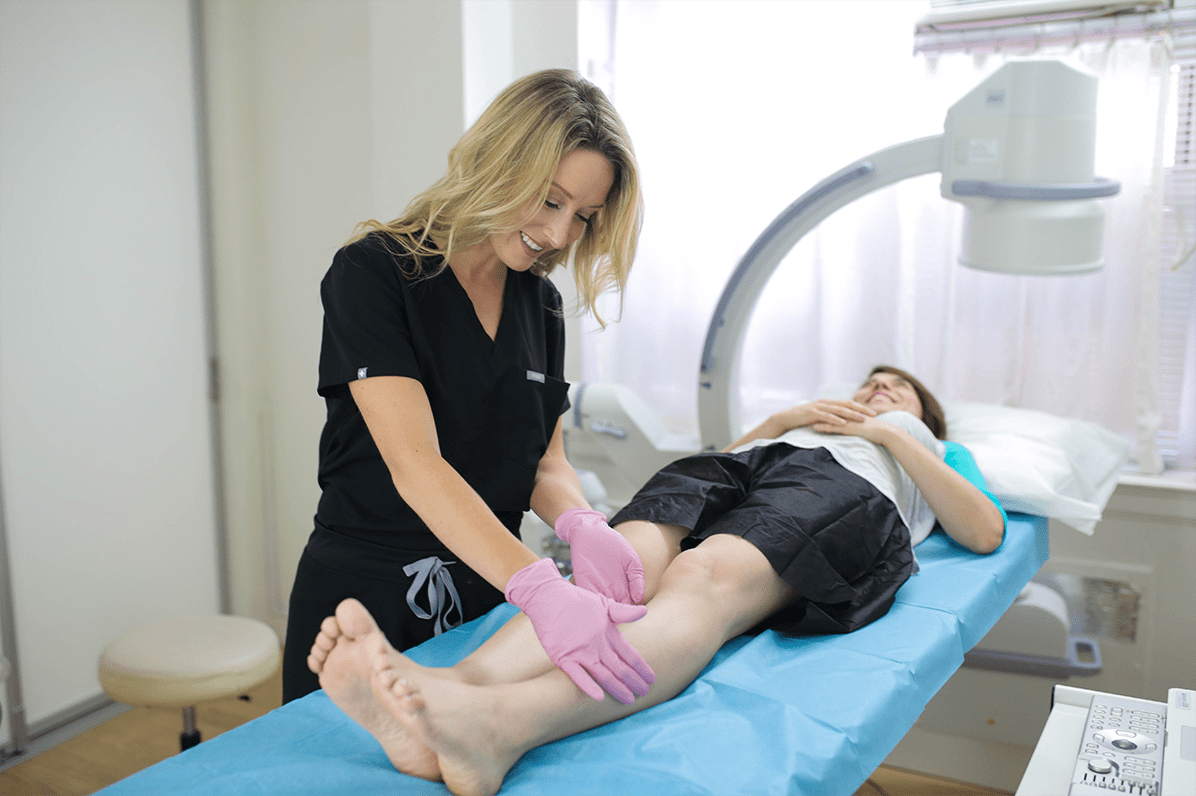When it comes to addressing vein-related health issues, seeking the expertise of a vein specialist can make a significant difference. These medical professionals are dedicated to diagnosing, treating, and managing conditions affecting the veins, such as varicose veins, spider veins, deep vein thrombosis (DVT), and chronic venous insufficiency. But what is a vein specialist doctor called? The answer lies in their specialized training and focus.
A vein specialist doctor is often referred to as a phlebologist. Phlebologists are experts in the field of venous diseases and are trained to use advanced diagnostic tools and treatment methods to ensure optimal patient outcomes. Additionally, some vein specialists might be vascular surgeons or interventional radiologists, depending on their specific training and practice focus.
The Expertise of a Phlebologist
Phlebologists possess extensive knowledge of the venous system, allowing them to identify and treat a wide range of vein disorders. Their expertise includes understanding the complex anatomy of veins, recognizing the symptoms of venous diseases, and employing the latest technologies for diagnosis and treatment.
One of the primary advantages of consulting a phlebologist is their ability to provide accurate diagnoses. Using techniques such as duplex ultrasound, they can visualize blood flow and identify any abnormalities within the veins. This non-invasive diagnostic tool helps in determining the severity of the condition and planning the most effective treatment approach.
Comprehensive Treatment Options
Phlebologists offer a variety of treatment options tailored to the specific needs of each patient. These treatments can range from minimally invasive procedures to more advanced surgical interventions. Here are some of the common treatments provided by vein specialists:
Sclerotherapy
Sclerotherapy is a popular and effective treatment for varicose and spider veins. During this procedure, a solution is injected into the affected veins, causing them to collapse and eventually be absorbed by the body. This method is minimally invasive and typically requires no downtime, making it a convenient option for many patients.
Endovenous Laser Treatment (EVLT)
Endovenous laser treatment is a cutting-edge procedure used to treat larger varicose veins. A thin laser fiber is inserted into the affected vein, delivering laser energy to seal it shut. This technique is highly effective and is performed under local anesthesia, allowing patients to resume normal activities shortly after the procedure.
Radiofrequency Ablation (RFA)
Similar to EVLT, radiofrequency ablation uses heat to close off problematic veins. Instead of laser energy, RFA employs radiofrequency waves to generate heat and collapse the vein. This treatment is also minimally invasive and offers quick recovery times.
Preventive Care and Long-Term Management
One of the key benefits of consulting a phlebologist is their focus on preventive care and long-term management of venous diseases. Vein specialists work closely with patients to develop personalized care plans that address lifestyle factors, such as diet, exercise, and compression therapy, to prevent the recurrence of vein issues.
Identifying When to See a Vein Specialist
Knowing when to see a vein specialist is crucial for timely and effective treatment. Here are some common signs and symptoms that indicate it may be time to schedule a consultation with a phlebologist:
Persistent Leg Pain or Discomfort
Chronic leg pain, aching, or discomfort, especially after prolonged periods of standing or sitting, can be indicative of venous insufficiency. If you experience these symptoms regularly, a vein specialist can help determine the underlying cause and recommend appropriate treatment.
Visible Varicose or Spider Veins
The appearance of varicose or spider veins is a clear sign of venous issues. While these conditions are often cosmetic concerns, they can also indicate more serious underlying problems. A phlebologist can assess the severity of the condition and suggest suitable treatment options.
Swelling and Edema
Swelling in the legs, ankles, or feet, known as edema, can be a symptom of venous insufficiency or other vein-related disorders. If you notice persistent swelling, it is important to seek the expertise of a vein specialist for a thorough evaluation.
Benefits of Early Intervention
Early intervention by a phlebologist can prevent the progression of venous diseases and reduce the risk of complications. Timely treatment can improve the overall quality of life by alleviating symptoms, enhancing mobility, and preventing more serious conditions such as blood clots or skin ulcers.
Choosing the Right Vein Specialist
Selecting the right vein specialist is a critical step in achieving the best possible outcomes for your vein health. Here are some factors to consider when choosing a phlebologist:
Qualifications and Credentials
Ensure that the vein specialist you choose is board-certified and has the necessary qualifications and credentials. Look for certifications from reputable medical boards, such as the American Board of Venous & Lymphatic Medicine (ABVLM).
Experience and Expertise
Experience matters when it comes to treating vein conditions. Inquire about the specialist’s experience in performing specific procedures and treating various venous diseases. An experienced phlebologist is more likely to provide effective and safe treatments.
Patient Reviews and Testimonials
Reading patient reviews and testimonials can provide valuable insights into the specialist’s reputation and the quality of care they provide. Look for feedback from patients who have undergone similar treatments to gauge their satisfaction and outcomes.
The Consultation Process
During the initial consultation with a vein specialist, you can expect a thorough evaluation of your vein health. The consultation typically includes the following steps:
Medical History Review
The specialist will review your medical history, including any previous vein treatments, surgeries, and underlying health conditions. This information helps in understanding the overall health and potential risk factors.
Physical Examination
A physical examination of the legs and affected areas is conducted to assess the condition of the veins. The specialist may use visual inspection and palpation to identify visible varicose or spider veins and areas of tenderness or swelling.
Diagnostic Tests
Diagnostic tests, such as duplex ultrasound, are often performed to obtain detailed images of the veins and blood flow. These tests are crucial for accurately diagnosing the condition and planning the appropriate treatment.
Personalized Treatment Plan
Based on the evaluation and diagnostic results, the vein specialist will develop a personalized treatment plan tailored to your specific needs. The plan may include one or more treatment options, along with recommendations for lifestyle modifications and preventive measures.
Follow-Up and Aftercare
Follow-up appointments are essential for monitoring the progress of the treatment and ensuring optimal outcomes. During these visits, the specialist will assess the effectiveness of the treatment, address any concerns or complications, and make any necessary adjustments to the care plan.
Importance of Adhering to Treatment Recommendations
Adhering to the treatment recommendations provided by the vein specialist is crucial for achieving the best results. This may include wearing compression stockings, maintaining a healthy diet, staying active, and attending follow-up appointments as scheduled.
Conclusion: Prioritizing Vein Health
Understanding what a vein specialist doctor is called and recognizing the advantages of consulting a phlebologist can significantly impact your vein health. These specialists offer a comprehensive approach to diagnosing, treating, and managing vein conditions, ensuring that you receive the highest standard of care.
By seeking the expertise of a phlebologist, you can benefit from accurate diagnoses, effective treatments, and preventive care strategies that enhance your overall well-being. Remember, early intervention and adherence to treatment recommendations are key to maintaining healthy veins and preventing complications.
If you experience symptoms such as persistent leg pain, visible varicose or spider veins, or swelling, don’t hesitate to schedule a consultation with a vein specialist. Prioritizing your vein health can lead to improved quality of life and greater peace of mind.






